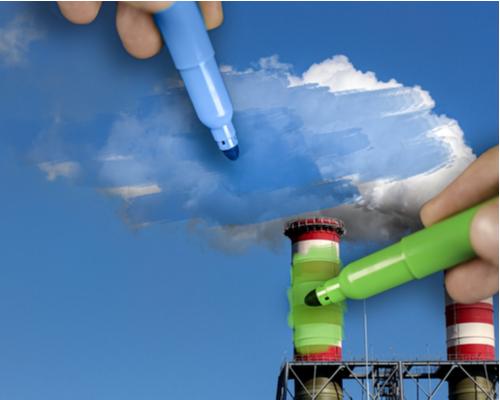A new peer-reviewed study argues that public relations (PR) firms are a major force in U.S. climate change obstruction, influencing public perception of the challenges and solutions of climate change.
The article, “The Role of Public Relations Firms in Climate Change Politics,” published today in Climatic Change, offers the most comprehensive look to date at how individual public relations and advertising firms have assisted the coal, steel, rail, oil & gas, and utility industries as well as the renewable energy industry and environmental groups. A summary of ongoing research by the Brown Climate and Development Lab, “Beyond Climate Denial” was also released today that goes into detail on some of the campaigns and the agencies — many of the top public relations firms in the world — behind them.
Analyzing the use of prominent PR firms over the time period 1988 to 2020, the Climatic Change analysis finds the utility sector engaged public relations firms the most of any sector studied. Within each sector, engagement of PR firms is concentrated in a few firms, and the major oil companies and electrical-supply manufactures are the heaviest employers of such firms. The research finds that PR campaigns were successful in creating narratives that shaped public elite discourse about climate change. Terms such as “clean coal,” “renewable natural gas,” “coal country,” “carbon footprint,” and “Earth Hour” are directly attributable to PR campaigns.
“The fossil fuel industry’s obstruction of climate action goes beyond misinformation and climate denial. A major part of the effort to obstruct climate action involves enhancing the positive public reputation for the fossil fuel companies and emphasizing the benefits of continued fossil fuel use,” said Robert Brulle, Visiting Professor at Brown University and co-author on the article. “From the severity of climate impacts to policies to address the problem, PR firms are a big part of the corporate propaganda machinery that guides the way Americans think about the issue.”
The research finds that many of the largest PR firms promoted fossil fuel interests in some cases while also supporting environmental groups. PR firms developed campaigns that frequently relied on third-party groups to engage with the public, criticize opponents, and serve as the face of an advertising campaign. Campaigns intended to bolster the image of an entire sector often rely on third-party groups to reach out to the public.
“Our ongoing analysis shows that fossil fuel industries rely on public relations to enhance their brand and achieve their legislative goals,” said Cartie Werthman, co-author on the Climatic Change article and lead author on the Brown analysis. “From creating front groups that raise faux grassroots support for an industry to running ad campaigns opposing climate policies, some of the largest public relations firms in the country helped fossil fuel companies advance their agenda.”
The article’s supplementary material features detailed profiles of PR firms and the campaigns they have been involved with, from early efforts to discredit climate science to activities on the Green New Deal.



